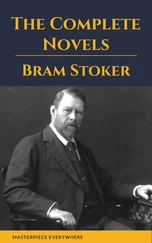“No,” he said stubbornly. “Oh, it is easy for you. You are of the equestrian order. You are a soldier—the friend of Stilicho. But I—I am not.”
“You have ambitions.”
He flushed. “Yes, does that surprise you.” He paused, glanced at me doubtfully and then said, in a low voice, “The governor of Belgica is due to retire soon. I have some hopes. I cannot help having hopes.”
“Then help me,” I said. “I spent half a lifetime as praefectus of a cohort. Yes, I too. Help me and I will use what influence I possess to help you. But, if the frontier goes neither of us will have a future. It is as simple as that.”
He bit his lip. “You don’t understand,” he mumbled. “I will inform the governor. I will write to the Praefectus Praetorio. When I hear from them I will let you know. It is all I can do.” He nodded briefly and hurried from the room, his face, shiny with sweat, wearing its usual nervous, obstinate look. His sandals clattered on the stairs and then he was gone, and I was alone in the room again.
I did not learn until much later—and by then it was too late—what it was that frightened him so. And yet, in his own way he was right. I had been born with all the advantages he had spent a lifetime trying to attain. I had all the things he wanted so badly; and I could not really understand his restlessness, his ambition, his lack of assurance, his envy or his insecurity. He wanted—as we all did—what he had not got. He did not realise that when you reached the crest of the hill, the wind blew colder there than on the slopes.
I sat down on a stool by the window and poured myself some more wine. I felt very tired.
The Vandals tried again. They made a night attack on the islands, hoping to secure them as a bridgehead that would make the final assault on the west bank an easy matter. I had been careful to keep the fact that I held these islands in strength a secret. The centuries on duty there were always relieved at night, the defensive positions were concealed by undergrowth and the garrisons had strict instructions not to show themselves during the daylight hours. Goar sent me a warning, as did Marcomir who maintained, from the high ground he commanded, a careful watch on the barbarian camp. Our fleet drove through their boats in the darkness and sliced them in half as you would slice an apple. The liquid fire, projected in special containers (a happy invention of Gallus) destroyed those who remained huddled on the east bank, waiting to embark, while those who reached the islands died, wetly, at the sword’s point. It was a complete disaster for them and they lost two thousand of their men in twenty minutes. These were the Marcomanni, and I was glad to think that each king, in turn, was learning to know the bitterness of failure. We lost only a few men, but our most tragic casualty was my senior tribune, whom I had put in charge of the north island to steady the inexperienced centurions who were on duty there. Lucillius was found under a tree, a small hole in his left arm-pit. He would never marry Guntiarus’ daughter now.
After that nothing happened, for the Rhenus was in full flood and we were safe for two months at least. It was then that I sent my soldiers on leave to Treverorum, moved units round from one fort to the next, to give each a change of conditions, turned the cavalry horses out to pasture and told Julius Optatus to take an inventory of all our stores. His report was not encouraging so I visited Treverorum myself, briefly, and warned the Curator that a levy would have to be imposed in the autumn on corn, sheep and oxen, and that I should need meat, salted down in vast quantities. “What about the authority?” he said, weakly. “That is your concern,” I replied. “Men who fight need food. That is an odd fact to which you must get accustomed, Artorius.”
The auxiliaries numbered five thousand now, so that not only could I leave all signal towers to be manned by them, but I could also use them to garrison Treverorum, as well as those forts upon which I knew no real attack would fall. This cheered us all enormously. As I said to Quintus, with a few more volunteers we should be able to turn the whole of the Twentieth into a field army when the time came, which would be something the Vandals had not bargained on.
He said stiffly, “Is it not about time you told me what our plan is to be? What are you going to do when the time comes?”
I was silent.
He misunderstood my silence. He said, “Of course, if I am not in your confidence—”
I said, “You are still my Master of Horse.”
“But not your friend.”
I said, “While we have the Rhenus fleet they cannot cross.”
He looked at me for a moment and then stared at the bare wall of my office. “Let us suppose there is no fleet.”
“Very well. This is what I think. They must cross at Moguntiacum. Only here, is the country flat enough to bring everyone over. There are so many of them; there can be no secret of their intention when the time comes. They will, however, make small attacks on all the other forts. At any one of those places, if they land a small force they might, with luck, outflank the forts and either move directly on Treverorum—but they don’t know how many men we have there—or cut our lines of communication and make nuisance attacks on us from the rear. But when the time comes, however, I shall hold those forts only with auxiliaries and concentrate the legion here.”
“All of it?” he said, intently.
“Yes, all of it.”
“No reserves?”
“No reserves. That is where I shall fight.” I put my finger on the map that lay on the table between us. “My left wing will secure itself to the new camp on the road to Bingium, and my right wing will rest on the north wall of the town. If the fort below us at Moguntiacum is still holding out—and I expect it to—they will have to attack us up a slope, with the river to their backs and an enemy fort firing on them behind their left shoulder. It is a position of great strength. They will have enormous difficulty dislodging us and we shall have the advantage of fighting behind ditches and stakes.”
He said slowly, “Yes, I see. It will not be a cavalry action then?”
“Not as you would like it, Quintus. If I had enough men I would fortify the whole length of the bank and destroy them in the water. But I have not. So I shall use your cavalry to break them up when they have failed in their attacks. I must be economical.”
“I understand,” he said in a flat voice. “And if they succeed?”
“They will only be too strong if we get tired first or run out of missiles. But if that does happen, I shall withdraw the legion to Bingium, cross the Nava and hold the further bank, leaving the garrison to defend the fort. It is an easy place to defend.”
“And if we still have to retreat?”
I said, “You are very sanguine about this?”
“Yes. I have never contemplated fighting at these odds before. Besides, something always goes wrong.”
“Well then, we shall pull straight back, leaving delaying ambushes, and hold the junction where the road splits for Confluentes and Bingium, at the thirtieth milestone. I shall have defensive positions prepared there as well.”
“And after that?”
“Oh, after that, if we have any men left we shall try to hold Treverorum.” I was silent for a moment. I said, “But if it goes like that there won’t be any legion left to worry about.”
He stood up, fiddling with the strap of his sword belt, a look of uncertainty upon his face. He glanced at me as though he would say something more, hesitated, and then turned upon his heel. “Thank you,” he said politely. “I thought that might be the plan.” He went from the room slowly, like an old man, and I returned to my papers.
Читать дальше












